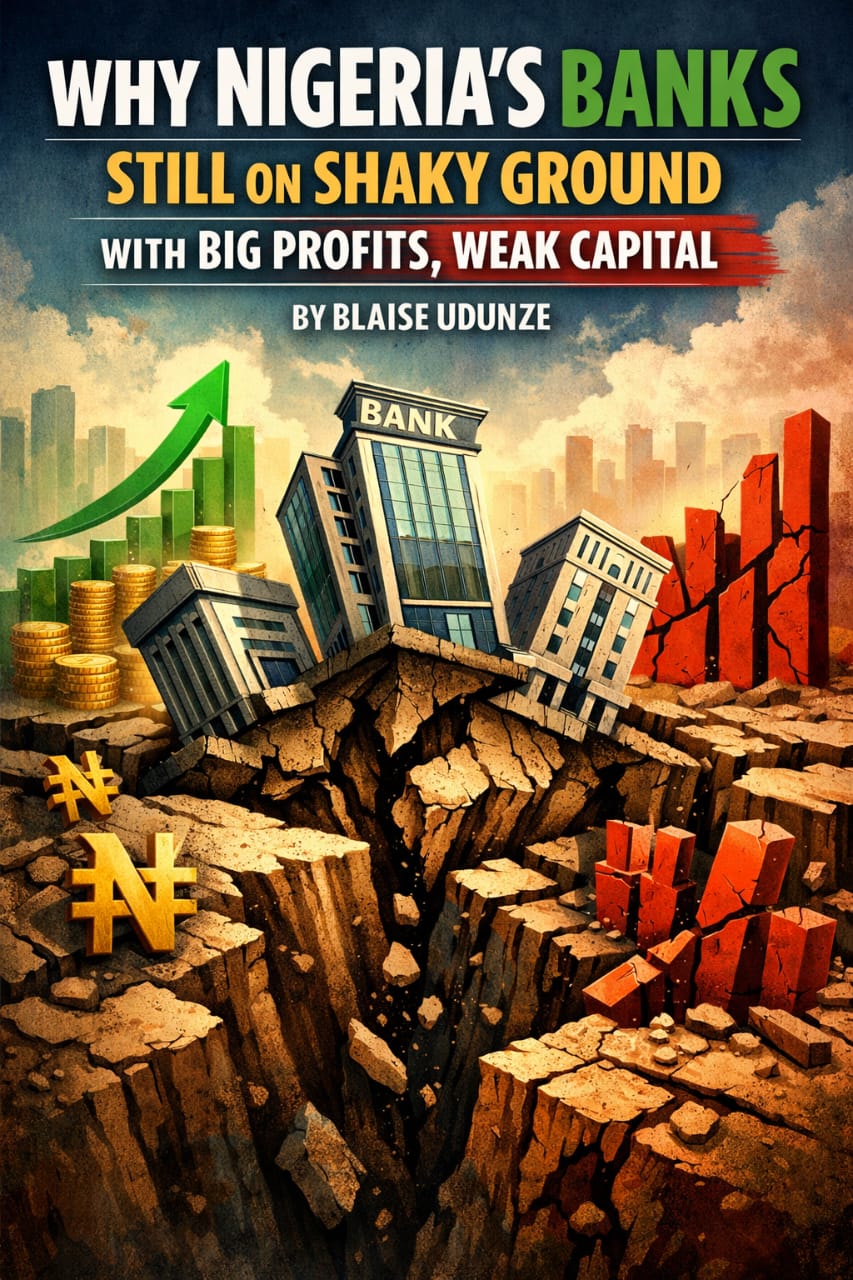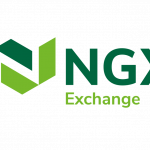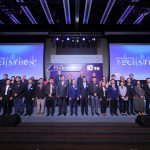Feature/OPED
7 Ways to Beat the End-of-Year Frazzle

Are you feeling the end-of-year frazzle?
It’s that time of the year when everything seems to be moving a bit too fast, leaving you feeling frazzled and overwhelmed. Work, family and a wealth of daily commitments usually keep life busy enough but, at year-end, every day becomes so chock-a-block with pressing things to do that your every waking moment feels as if it’s diarised within an inch of its life.
At times like this, when extra tasks are being added to your already tottering pile of commitments, it’s easy to feel as if you’re on a super-charged treadmill, racking up serious stress. While it may not be realistic to expect you to scale down on your responsibilities right now, try these seven ways to boost your wellbeing and calm your mind, so that you’re better able to cope with the challenges of the day:
Bump up your Vitamin C intake
Opt for drinks with lemon in them. The vitamin C content helps to minimize the effects of stress hormones in the body, say researchers at the University of Alabama in the USA. Vitamin C, in particular, is one of the first minerals to be depleted in the body when a person is under stress, so sip on a cup of lemon tea to benefit from its calming, strengthening effect on the nervous system, or add the juice of one lemon to a smoothie mix of 2 cups apple juice and a handful of grapes. Just the smell of lemon will also have a positive effect on anxiety and lift your mood so look at diffusing this essential oil in your home.
Breathe in the calm…
When things feel frantic, burning a candle or a blend of oils can help you relax. A blend of neroli and frankincense oils will have a calming effect, while a candle with a comforting scent like vanilla, will soothe frazzled nerves. Or, keep a little bottle of rose oil on hand as it is deeply calming and uplifting. Dab this onto your pulse points when you need to keep things under control.
It’s 2 am and you’re wide awake…
Getting a good night’s sleep is essential during stressful times, but going to bed with nerves that feel shredded can result in you waking up at 2 am, with your to-do list looping on repeat in your head. If your racing mind is regularly stopping you from getting enough rest, take intentional steps to wind down before bedtime. Things like taking a bath and spraying your pillow with lavender pillow spray will help you switch off and relax – make these an essential part of a calming, self-care ritual before bedtime.
A guided sleep meditation is a brilliant aid to falling asleep. Try the highly effective 10 Minute Guided Imagery Meditation or the longer, deeply relaxing Guided Sleep Meditation for Insomnia. If later on at night, you awake, and struggle to fall asleep again, calm whirling thoughts by counting slowly backwards from 100, or try this breathing technique: Breath in for one count, out for two, in for two, out for four, in for three, out for six, up to in for six and out for 12, then repeat backwards all the way down to one.
A more balanced life
In a hurly-burly world, the only thing you can control is your reaction to what’s happening around you. For a calm, more mindful approach to life, start off every morning with a guided meditation. It sets the tone for a balanced day, where you feel better equipped to handle whatever comes your way. Insight Timer is a brilliant free app for anxiety, stress and sleep. It has thousands of free guided meditations, which you can search for by theme, length or instructor, and features some of the best meditation teachers of our time, plus meditation sessions with celebrities known for their keen interest in mindfulness.
Get someone in to help at home
After a stressful work week, the last thing you feel like doing is tackling chores around the house. Take some of the pressure off yourself by hiring an expert and reliable cleaner from SweepSouth Connect. At the touch of a button, hire someone to tidy up and clean your home. It also helps that someone else has done the background checks of the cleaner you’re hiring on your behalf, which leaves you with even more me-time.
Take a zinc supplement
In addition to Vitamin C, it’s a good idea to consider a zinc supplement to boost your immune system. Zinc, one of the health heavyweights, is the second most abundant trace element in the body and helps build healthy immune cells needed to fight infection. It also reduces fatigue and plays a key role in the renewal of skin cells and keeping hair and nails healthy, concerns that often affect diabetics.
It’s okay to flop… down and relax
This one is a hard one for driven souls to admit, but it’s okay to take some time out and do nothing. Create a pocket of time, even if it’s just once a week, where you forget about commitments and to-do lists, and focus solely on something you enjoy. Choose an activity that’s easily achievable and entirely for your pleasure, whether it’s watching your favourite TV series or listening to music. Switching into relaxation mode and doing something for your own benefit, especially if it’s something that you love, strengthens and energizes you.
It’s easy to get so swept along by the tide of busyness that we forget about ourselves and our own health. But remember that tomorrow will be just as full of demands as today is. Don’t lose sight of the fact that occasionally, even if it’s just for a few minutes, you need to stop, slow things down, take a couple of deep breaths…and just let life be.
Feature/OPED
Why Nigeria’s Banks Still on Shaky Ground with Big Profits, Weak Capital

By Blaise Udunze
Despite the fragile 2024 economy grappling with inflation, currency volatility, and weak growth, Nigeria’s banking industry was widely portrayed as successful and strong amid triumphal headlines. The figures appeared to signal strength, resilience, and superior management as the Tier-1 banks such as Access Bank, Zenith Bank, GTBank, UBA, and First Bank of Nigeria, collectively reported profits approaching, and in some cases exceeding, N1 trillion. Surprisingly, a year later, these same banks touted as sound and solid are locked in a frenetic race to the capital markets, issuing rights offers and public placements back-to-back to meet the Central Bank of Nigeria’s N500 billion recapitalisation thresholds.
The contradiction is glaring. If Nigeria’s biggest banks are so profitable, why are they unable to internally fund their new capital requirements? Why have no fewer than 27 banks tapped the capital market in quick succession despite repeated assurances of balance-sheet robustness? And more fundamentally, what do these record profits actually say about the real health of the banking system?
The recapitalisation directive announced by the CBN in 2024 was ambitious by design. Banks with international licences were required to raise minimum capital to N500 billion by March 2026, while national and regional banks faced lower but still substantial thresholds ranging from N200 billion to N50 billion, respectively. Looking at the policy, it was sold as a modern reform meant to make banks stronger, more resilient in tough times, and better able to support major long-term economic development. In theory, strong banks should welcome such reforms. In practice, the scramble that followed has exposed uncomfortable truths about the structure of bank profitability in Nigeria.
At the heart of the inconsistency is a fundamental misunderstanding often encouraged by the banks themselves between profits and capital. Unknown to many, profitability, no matter how impressive, does not automatically translate into regulatory capital. Primarily, the CBN’s recapitalisation framework actually focuses on money paid in by shareholders when buying shares, fresh equity injected by investors over retained earnings or profits that exist mainly on paper.
This distinction matters because much of the profit surge recorded in 2024 and early 2025 was neither cash-generative nor sustainably repeatable. A significant portion of those headline banks’ profits reported actually came from foreign exchange revaluation gains following the sharp fall of the naira after exchange-rate unification. The industry witnessed that banks’ holding dollar-denominated assets their books showed bigger numbers as their balance sheets swell in naira terms, creating enormous paper profits without a corresponding improvement in underlying operational strength. These gains inflated income statements but did little to strengthen core capital, especially after the CBN barred banks from using FX revaluation gains for dividends or routine operations. In effect, banks looked richer without becoming stronger.
Beyond FX effects, Nigerian banks have increasingly relied on non-interest income fees, charges, and transaction levies to drive profitability. While this model is lucrative, it does not necessarily deepen financial intermediation or expand productive lending. High profits built on customer charges rather than loan growth offer limited support for long-term balance-sheet expansion. They also leave banks vulnerable when macroeconomic conditions shift, as is now happening.
Indeed, the recapitalisation exercise coincides with a turning point in the monetary cycle. The extraordinary conditions that supported bank earnings in 2024 and 2025 are beginning to unwind. Analysts now warn that Nigerian banks are approaching earnings reset, as net interest margins the backbone of traditional banking profitability, come under sustained pressure.
Renaissance Capital, in a January note, projects that major banks including Zenith, GTCO, Access Holdings, and UBA will struggle to deliver earnings growth in 2026 comparable to recent performance.
In a real sense, the CBN is expected to lower interest rates by 400 to 500 basis points because inflation is slowing down, and this means that banks will earn less on loans and government bonds, but they may not be able to quickly lower the interest they pay on deposits or other debts. The cash reserve requirements are still elevated, which does not earn interest; banks can’t easily increase or expand lending investments to make up for lower returns. The implications are significant. Net interest margin, the difference between what banks earn on loans and investments and what they pay on deposits, is poised to contract. Deposit competition is intensifying as lenders fight to shore up liquidity ahead of recapitalisation deadlines, pushing up funding costs. At the same time, yields on treasury bills and bonds, long a safe and lucrative haven for banks are expected to soften in a lower-rate environment. The result is a narrowing profit cushion just as banks are being asked to carry far larger equity bases.
Compounding this challenge is the fading of FX revaluation windfalls. With the naira relatively more stable in early 2026, the non-cash gains that once flattered bank earnings have largely evaporated. What remains is the less glamorous reality of core banking operations: credit risk management, cost efficiency, and genuine loan growth in a sluggish economy. In this new environment, maintaining headline profits will be far harder, even before accounting for the dilutive impact of recapitalisation.
That dilution is another underappreciated consequence of the capital rush. Massive share issuances mean that even if banks manage to sustain absolute profit levels, earnings per share and return on equity are likely to decline. Zenith, Access, UBA, and others are dramatically increasing their share counts. The same earnings pie is now being divided among many more shareholders, making individual returns leaner than during the pre-recapitalisation boom. For investors, the optics of strong profits may soon give way to the reality of weaker per-share performance.
Yet banks have pressed ahead, not only out of regulatory necessity but also strategic calculation.
During this period of recapitalization, investors are interested in the stock market with optimism, especially about bank shares, as banks are raising fresh capital, and this makes it easier to attract investments. This has become a season for the management teams to seize the moment to raise funds at relatively attractive valuations, strengthen ownership positions, and position themselves for post-recapitalisation dominance. In several cases, major shareholders and insiders have increased their stakes, as projected in the media, signalling confidence in long-term prospects even as near-term returns face pressure.
There is also a broader structural ambition at play. Well-capitalised banks can take on larger single obligor exposures, finance infrastructure projects, expand regionally, and compete more credibly with pan-African and global peers. From this perspective, recapitalisation is not merely about compliance but about reshaping the competitive hierarchy of Nigerian banking. What will be witnessed in the industry is that those who succeed will emerge larger, fewer, and more powerful. Those that fail will be forced into consolidation, retreat, or irrelevance.
For the wider economy, the outcome is ambiguous. Stronger banks with deeper capital buffers could improve systemic stability and enhance Nigeria’s ability to fund long-term development. The point is that while merging or consolidating banks may make them safer, it can also harm the market and the economy because it will reduce competition, let a few banks dominate, and encourage them to earn easy money from bonds and fees instead of funding real businesses. The truth be told, injecting more capital into the banks without complementary reforms in credit infrastructure, risk-sharing mechanisms, and fiscal discipline, isn’t enough as the aforementioned reforms are also needed.
The rush as exposed in this period, is that the moment Nigerian banks started raising new capital, the glaring reality behind their reported profits became clearer, that profits weren’t purely from good management, while the financial industry is not as sound and strong as its headline figures. The fact that trillion-naira profit banks must return repeatedly to shareholders for fresh capital is not a sign of excess strength, but of structural imbalance.
With the deadline for banks to raise new capital coming soon, by 31 March 2026, the focus has shifted from just raising N500 billion. N200 billion or N50 billion to think about the future shape and quality of Nigeria’s financial industry, or what it will actually look like afterward. Will recapitalisation mark a turning point toward deeper intermediation, lower dependence on speculative gains, and stronger support for economic growth? Or will it simply reset the numbers while leaving underlying incentives unchanged?
The answer will define the next chapter of Nigerian banking long after the capital market roadshows have ended and the profit headlines have faded.
Blaise, a journalist and PR professional, writes from Lagos and can be reached via: [email protected]
Feature/OPED
Responsible by Design: How Tech Partners Must Rethink AI Deployment

By Mostafa Kabel
Artificial intelligence is no longer an experimental technology confined to innovation labs. It is actively shaping customer experiences, automating business decisions, and generating original content at scale. As adoption accelerates across industries, tech partners sit at the centre of this transformationresponsible not only for deployment, but for ensuring AI is used legally, ethically, and transparently.
The new phase of AI adoption demands more than technical expertise. It requires partners to rethink legal frameworks, intellectual property models, service accountability, and ethical responsibility. Those who fail to adapt risk regulatory exposure, reputational damage, and erosion of customer trust.
Navigating Legal and Licensing Complexity
One of the most critical areas partners must address is licensing and legal compliance. AI modelsparticularly generative onesare only as deployable as the rights that govern them. Partners must ensure that models are authorised for commercial use and that the outputs they generate do not infringe on copyright, privacy, or data sovereignty regulations.
This becomes especially important in automated decision-making scenarios such as hiring, credit assessments, or fraud detection, where accountability must be clearly defined. Contracts should outline liability boundaries and compliance obligations under frameworks such as GDPR or regional equivalents. Auditability and bias mitigation are no longer optional safeguards; they are legal necessities, particularly in regulated sectors.
Adding another layer of complexity is the infrastructure underpinning AI. The growing reliance on high-performance GPUs introduces exposure to export controls, sanctions, and hardware usage restrictions. In regions with geopolitical sensitivities, partners must ensure AI infrastructure deployments align with government regulations and vendor licensing requirements.
Defining IP Ownership in an AI-Driven World
Intellectual property ownership in AI is rarely straightforward. Partners must clearly distinguish between ownership of the base model, the training data, and the resulting outputs. This becomes especially nuanced in co-development or white-label arrangements.
If a partner fine-tunes a model using a customer’s proprietary data, ownership of that model variantand its outputsmust be explicitly defined. Agreements should also cover redistribution rights, commercial usage, and branding controls. Addressing these questions early not only avoids disputes but establishes trust and alignment between partners and enterprise clients.
Ethical Responsibility as a Business Imperative
When AI influences hiring decisions, financial outcomes, or customer interactions, ethical responsibility becomes inseparable from technical delivery. Partners have a duty to ensure systems are fair, transparent, and non-discriminatory.
This means investing in diverse training data, conducting regular bias assessments, and enabling explainable AI outputs. Importantly, these responsibilities should be reflected in service agreements. Clients should have the right to human oversight, audit AI-driven decisions, and request corrective action when unintended outcomes arise. Ethical guardrails are no longer philosophical idealsthey are essential to regulatory compliance and long-term adoption.
Updating SLAs for Generative AI Reality
Traditional service level agreements were never designed for systems that learn, adapt, and sometimes behave unpredictably. Generative AI introduces challenges such as hallucinations, data drift, and inconsistent outputs, all of which must be acknowledged contractually.
Partners should update SLAs to include AI-specific performance benchmarks, monitoring mechanisms, and escalation procedures. Risk disclaimers must clearly state that AI-generated content may not always be accurate or contextually appropriate. Regular model reviews and updates should also be built into agreements to ensure sustained performance over time. Just as important is educating customerssetting realistic expectations is foundational to responsible deployment.
Building Trust Through Transparency
Trust in AI begins with transparency. Partners reselling or customising third-party models should disclose the model’s source, version, training scope, and known limitations. Any modifications or fine-tuning must be documented and shared with clients.
Labelling AI-generated content, enabling explainability tools, and offering audit capabilities all contribute to greater accountability. Many organisations are also adopting ethical AI frameworks or certifications as a way to formalise best practices. Ongoing education and openness about AI capabilities and limitations are key to building durable client relationships.
Preparing for a More Regulated Future
Looking ahead, the partner ecosystem must take a proactive approach to AI governance. Standardised AI clauses will increasingly become part of contracts, addressing IP rights, data privacy, explainability, and liability. On the technical side, partners must invest in governance platforms, continuous monitoring, and bias detection tools.
Ethically, alignment with global regulations such as the EU AI Act will be critical, even for organisations operating outside Europe. Shared codes of conduct, regular training, and collaboration with policymakers will define the next generation of responsible AI partnerships.
At Mindware, we are already supporting partners on this journey. With deep experience across AI infrastructure, software, and compliance services, we help organisations build secure, scalable, and responsible AI frameworks. From compliant GPU deployments and AI-ready data platforms to ethical governance advisory, we work closely with partners across the MEA region to navigate evolving regulatory and technological demands.
As AI continues to reshape industries, success will belong to those who can deploy it not just quicklybut responsibly, transparently, and ethically.
Mostafa Kabel is the CTO of Mindware Group
Feature/OPED
Nigerians Are Always Happy

By Prince Charles Dickson PhD
A national satire on beer, broken systems, and the baffling value systems that keeps us smiling through tears.
JRD Tata had a friend who used to say that he misplaced and lost his pen very often. Hence, he would use only very cheap pens, so that he didn’t have to worry about losing them. He was worried about his carelessness.
JRD suggested to him to buy the costliest pen he could afford and see what happens.
His friend did just that and purchased a 22-carat gold Cross pen. After nearly six months JRD met him and asked him if his habit of misplacing pens still bothered him? His friend said that he had become very careful about his costly pen, and he was himself surprised how he had changed!
JRD explained to him that it was the value of the pen that had made the difference, and there was nothing wrong with him as a person!
This is what happens in our life. We are careful with things that we value the most.
- If we value our health, we will be careful about what and how we eat.
- If we value our friends, we will treat them with respect.
- If we value money, we will be careful while spending.
- If we value our time, we will not waste it.
- If we value our relationship, we will be careful not to push our limits and risk breaking it.
Everything depends on our perception of value.
There is a global conspiracy theory that Nigerians are the happiest people on earth. A theory so bold that even we, the subjects of this emotional experiment, occasionally pause and ask ourselves, “Me? Happy? With this economy? With this exchange rate? With this insecurity? With the national grid collapsing due to national greed.”
Yet the data is undeniable: ₦1.54 trillion spent on beer in nine months.
If happiness had a budget line, this would be it.
Nigeria may not have reliable electricity, but we have reliable consumption habits. The country may not produce enough jobs, but we produce enough empty bottles. Our security architecture may look like it was designed by tired civil servants after pepper soup, but our nightlife runs like Swiss clockwork.
There are many proofs that Nigerians love enjoyment, but this new figure has carried first position. It is now official: Nigerians may not value their leaders, their hospitals, their future or their taxes, but they value cold beer like a covenant.
And who can blame us?
Living in Nigeria is like being in a relationship with someone who loves you in theory but forgets you in practice. You wake up to hardship, go to bed with uncertainty, and somewhere in the middle, your landlord sends a broadcast message saying he loves peace but is increasing rent.
If you don’t drink, what will you do?
Meditate?
You cannot meditate when the price of rice is rising and the price of petrol is behaving like a spiritual attack. Nigerians are not drinking for pleasure; many are drinking to survive the news cycle.
Every day: One tragedy, one inflation spike, one new policy, one new exchange rate. How won’t the nation drink?
We drink the way other countries run public healthcare: consistently.
We drink the way other countries fix roads: passionately.
We drink the way other nations repair institutions: with conviction.
Nigeria is the only country where people can be discussing kidnapping on one table and ordering more bottles on the next.
“Guy, dem kidnap three people for that side.”
“Ha! Serious? Abeg add two plates of peppered meat.”
It is emotional multitasking.
Because Nigerians have mastered the rare art of holding suffering in one hand and enjoyment in the other without spilling either. It is the only balance this country has ever achieved.
Bandits are roaming.
Inflation is jogging.
Cost of living is sprinting.
But Nigerians are still saying,
“Life no hard reach like that… at all at all.”
It is denial, yes.
But elite-level denial.
UNESCO should document it.
We drink to forget.
We drink to remember.
We drink because the music is good.
We drink because NEPA has taken light again.
We drink because work is stressful.
We drink because work is not even coming.
We drink because politicians are misbehaving.
We drink because politicians are behaving exactly as expected.
We drink because Nigeria is Nigeria-ing.
When a country’s biggest coping mechanism is bottled, malted and refrigerated, you know the nation needs therapy. But therapy is expensive.
Beer is cheaper.
Well… it used to be.
Now, even the beer is complaining.
Yet we buy it.
We misplace the expensive things — life, governance, education, national peace — and protect the cheap ones — gossip, entertainment, and political drama.
If value shaped our behaviour the way it should, Nigeria would be a paradise.
But Nigerians value vibes.
We protect vibes.
We invest in vibes.
We sacrifice for vibes.
We build GoFundMes for vibes.
Meanwhile, the country?
Well, the country is somewhere behind us, shouting for attention like the last-born in a large family.
A Hausa warning says: “Duk abin da kake raina zai haɗiye ka.”Whatever you fail to value will eventually consume you.
Nigeria’s national value system looks like this:
- We value enjoymentmore than savings.
- We value surviving todaymore than preparing for tomorrow.
- We value laughing at problemsmore than solving them.
- We treat life like a cheap pen.
- We treat enjoyment like a gold-plated Cross pen.
Our happiness is rebellious.
Stubborn.
Almost irresponsible.
When prices rise, Nigerians laugh.
When politicians misbehave, Nigerians make memes.
This happiness is not ordinary joy.
It is endurance masquerading as laughter.
It is survival packaged as banter.
It is pain dressed in agbada.
Happiness is the last thing Nigeria has not taxed.
Yet.
Imagine, just imagine, if Nigerians guarded national development the way they guard cold drinks at a party:
Nobody should touch it except authorized personnel.
If it falls, we mourn.
If it finishes, we riot.
What if:
- We valued security the way we value weekend outings?
- We valued accountability the way we value entertainment?
- We valued public good the way we value personal enjoyment?
- We valued the future the way we value “TGIF”?
Nigeria would transform overnight.
But instead, we are a nation where the price of alcohol rises, and people still buy it. But the price of governance rises, and nobody demands receipts. Because we have conditioned ourselves to protect relief more than responsibility.
Our happiness is admirable.
Our resilience is legendary.
Our adaptability is world-class.
But none of these things are development strategies. A laughing population is not automatically a thriving nation.
Let us keep our joy, because without it, this country will finish us. But let us also assign proper value to the things that build nations: institutions, planning, justice, safety, productivity, and accountability.
We have already proven we know how to drink. Now let us prove we know how to think. Because as it stands, the beer companies are enjoying the value we refuse to give to the country itself.
And until Nigeria becomes a gold pen, not a disposable biro, we will continue to lose it, forget it, misuse it, and replace it with laughter—May Nigeria win.
-

 Feature/OPED6 years ago
Feature/OPED6 years agoDavos was Different this year
-
Travel/Tourism9 years ago
Lagos Seals Western Lodge Hotel In Ikorodu
-

 Showbiz3 years ago
Showbiz3 years agoEstranged Lover Releases Videos of Empress Njamah Bathing
-

 Banking8 years ago
Banking8 years agoSort Codes of GTBank Branches in Nigeria
-

 Economy3 years ago
Economy3 years agoSubsidy Removal: CNG at N130 Per Litre Cheaper Than Petrol—IPMAN
-

 Banking3 years ago
Banking3 years agoSort Codes of UBA Branches in Nigeria
-

 Banking3 years ago
Banking3 years agoFirst Bank Announces Planned Downtime
-

 Sports3 years ago
Sports3 years agoHighest Paid Nigerian Footballer – How Much Do Nigerian Footballers Earn













